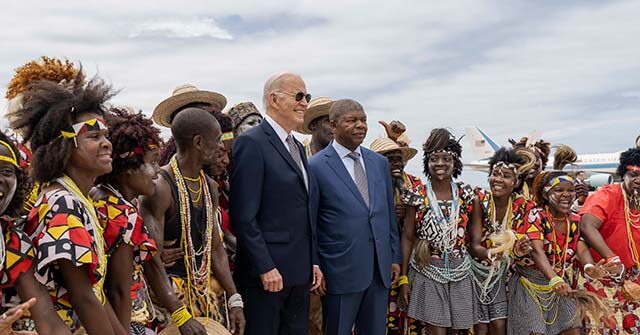President Joe Biden’s recent visit to the National Museum of Slavery in Angola’s capital, Luanda, underscored his administration’s commitment to acknowledging the historical injustices of slavery. During his speech, Biden referred to slavery as America’s “original sin,” emphasizing its lingering effects on American public discourse and societal structures. He referenced the foundational principle of the United States, articulated in the Declaration of Independence, that all individuals are created equal, while acknowledging that the country has fallen short of realizing this ideal. The location of his speech was particularly poignant, taking place near a site where enslaved Africans were baptized before their forced transportation across the Atlantic, a direct link to the brutal history Biden aimed to confront.
Biden highlighted the dehumanizing nature of slavery, characterizing it as “cruel, brutal, [and] dehumanizing.” His remarks resonated with the historical context of the trans-Atlantic slave trade, particularly in relation to Angola, where many of the first enslaved Africans originated. Up to a quarter of enslaved individuals sent to America reportedly passed through this region, making it central to understanding slavery’s historical impact. Among the audience were descendants of Angola’s first enslaved individuals in colonial Virginia, who expressed appreciation for Biden’s acknowledgment of their heritage and the ongoing need to share these vital historical narratives.
The president’s speech served as a broader critique of contemporary discourse surrounding slavery and its implications. Biden chastised American conservatives for allegedly attempting to suppress discussions of slavery in schools, encouraging a reckoning with the nation’s past. He asserted that, while history can be hidden, it should not be erased, stressing the importance of confronting the full spectrum of historical truths. His remarks drew attention to a perceived trend of avoiding difficult conversations about America’s legacy, framing this as a challenge that great nations must confront.
However, there are critiques regarding the irony present in Biden’s advocacy for confronting slavery, especially in light of criticisms over his administration’s immigration policies. Detractors have argued that these policies may have inadvertently contributed to the rise of modern-day slavery, particularly in relation to human trafficking. Reports indicate a troubling escalation in human trafficking, with individuals reportedly exploited under Biden’s watch, raising questions about the administration’s effectiveness in combating this issue. Whistleblowers from his administration have described dire conditions for migrant children, highlighting systemic shortcomings in protecting vulnerable populations from exploitation.
In a broader sense, the link between Biden’s historical reflections and contemporary issues illustrates the complexities surrounding discussions of slavery and its legacy. Critics have noted that while Biden adeptly recounted historical injustices, there appears to be a disconnect with the pressing realities faced by individuals in today’s context of trafficking and exploitation. Reports from various entities have detailed how recent immigration frameworks have been exploited by traffickers, allowing for the unauthorized movement of individuals across borders under the guise of humanitarian programs.
In conclusion, Biden’s speech at the National Museum of Slavery aimed to shine a light on America’s complex relationship with its past, urging a commitment to engage with the painful history of slavery. However, the administration faces scrutiny over how effectively it addresses modern slavery and human trafficking, raising important questions about the practical implications of Biden’s rhetoric. For the descendants of enslaved individuals and those advocating for justice, the challenge lies not only in remembering the past but also in ensuring that the lessons learned translate into tangible protections against exploitation in the present day.

